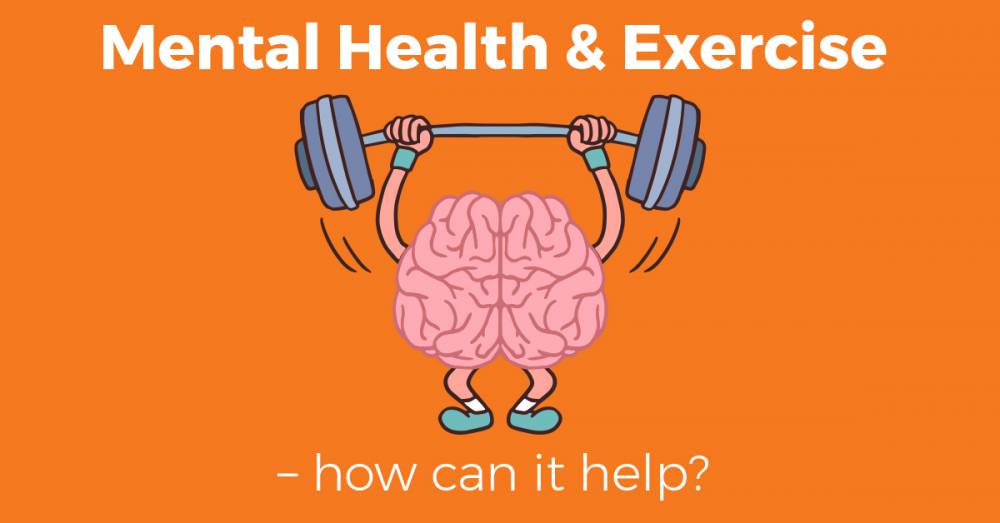The Latin phrase
“mens sana in corpore sano” (a healthy mind in a healthy body) is widely quoted in the context of exercise and sport to demonstrate the theory that physical activity is essential to both our physical and mental wellbeing.
Unfortunately, we have created a modern society that is out of kilter with the basic needs of both our minds and bodies. We rush around and push ourselves to the limit, live in a 24/7 environment, don’t sleep enough, sit down too much, plug ourselves into electronic devices day and night, and ignore the warning signs of illness and fatigue until we are totally stressed out and anxious. Over time, not only our physical health suffers, but mental ill health can also develop. Poor mental health is the leading cause of absenteeism in the workplace and the main reason why people leave their jobs. It is also a major cause of the breakdown of those relationships that make our lives happy and meaningful.
Our bodies are designed for movement; lifting, bending, pushing, pulling and stretching, all develop our muscles and make our bones, joints and heart stronger and better able to resist disease. Perhaps unexpectedly, exercise is also very effective in dealing with mental disorders such as stress, anxiety, ADHD, PTSD and depression, and people who exercise regularly do so because it gives them a sense of positive wellbeing.
Exercise and anxiety/depressionStudies have shown that exercise is as effective as medication for mild to moderate depression and doesn’t carry any unpleasant side effects, apart from the occasional sore muscle. It’s also been shown that even moderate exercise like walking for an hour a day decreases depression by over 25%. When we exercise, our brains exhibit changes, including the growth of neurons, a decrease in inflammation and the release of “happy hormones” called endorphins, which promote feelings of calm and make us feel good. Exercise also distracts us from the cycle of negative thoughts and worries and gives us time to get away from our day-to-day problems, and is very effective in combatting anxiety by relieving tension and aiding relaxation.
Exercise and stressMany of us spend much of our lives hunched over computer terminals and facing work deadlines and targets that create stress. We may then experience the stress of heavy traffic driving home and financial and personal worries that make us even more tense. Headaches, insomnia and digestive problems may ensue. Exercise is an effective way to break this cycle by relaxing the stresses and tensions in our bodies, improving our mood and making us more resilient and able to face life’s stresses and strains without resorting to unhealthy props like overeating, smoking or drinking.
Exercise and Self Esteem
Like it or not
, we are often judged by our appearance, and being unfit and overweight (or underweight) can lead to feelings of low self-esteem and lack of body confidence. Even just getting started on a healthy eating and exercise regime can boost our feelings of self-worth and if we achieve results, we will not only reap the benefits of better health and fitness, we will feel more positive about ourselves too.
Exercise and ADHD/PTSD
Studies show that even more serious mental health conditions can be improved by regular exercise. Attention deficit hyperactivity disorder (ADHD) is a chronic condition that causes impulsive behaviour, inattention and hyperactivity. When we exercise, the brain releases neurotransmitters, including dopamine, which it is believed ADHD sufferers are deficient in and which helps them think more clearly and speak and behave less impulsively.
PDSD sufferers - people who have experienced traumatic events - may avoid exercise because it increases arousal, makes them breathless and causes their heart to race – all things that may be associated with frightening situations. They may also be depressed, low in energy and lacking in motivation. However, it has been found that exercise is one of the most effective treatments for PTSD, leading to better physical and mental health and promoting better sleep. If you want to learn more about the positive mental health benefits of exercise to those who have suffered physical and psychological trauma, see our blog about war veteran and Invictus Games hero,
Paul GuestExercise and Energy Levels/Better Sleep
Contrary to what you might expect, although exercise might temporarily tire you out, regular exercise increases your blood flow and improves your cardiovascular health. This results in enhanced levels of energy and better sleep, which in turn promote better mental health.
So, how much exercise do we need to do to protect our mental wellbeing? The Department of Health recommends that adults should aim to be active daily and complete 2.5 hours of moderate intensity activity over a week – the equivalent of 30 minutes five times a week. It has been shown that exercising in nature is even more beneficial, so when you factor in a country walk, bike ride or a spot of gardening, in addition to your visits to the gym, it shouldn’t be too hard to fit in enough beneficial exercise to keep your mind and body in great shape.
![]()
![]()
![]() blog
blog![]()
![]()
![]() blog
blog